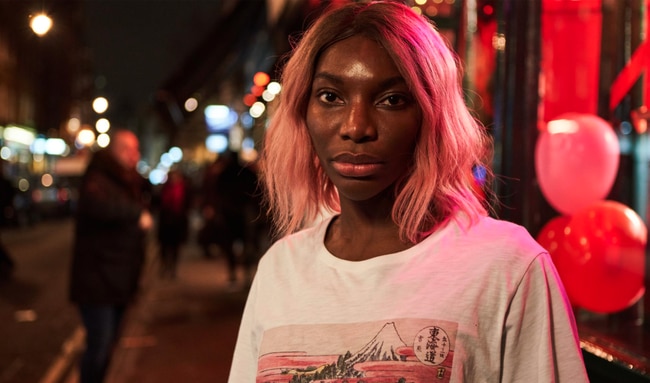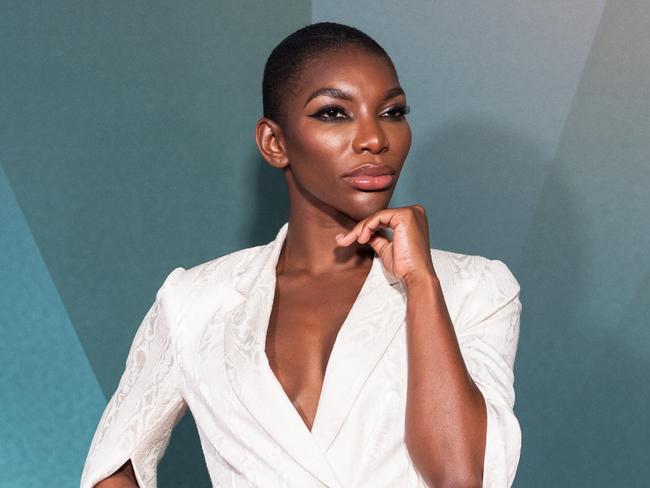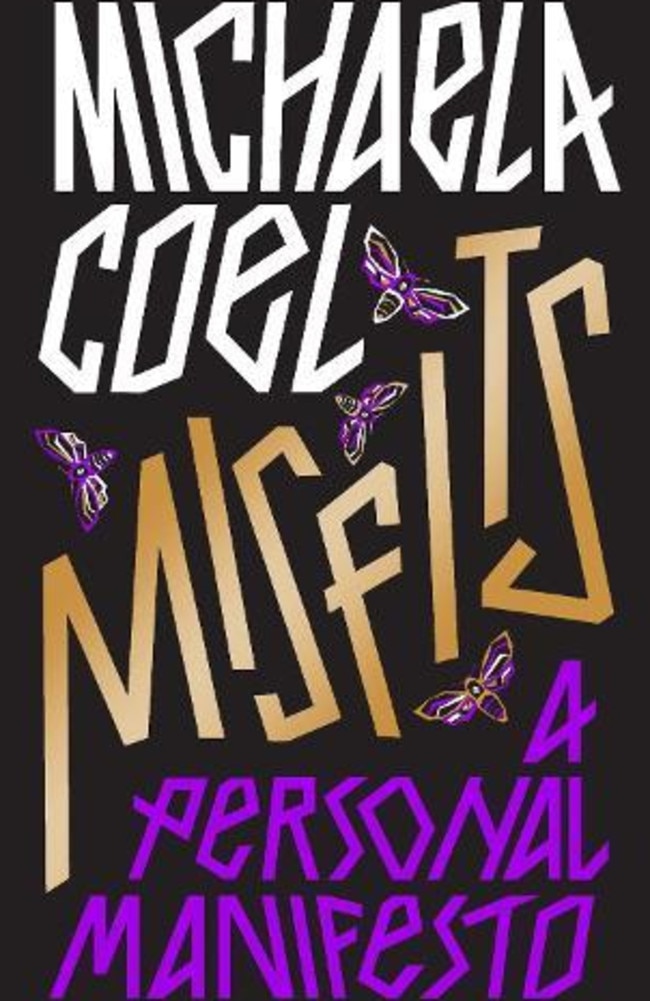Misfits: A Personal Manifesto by Michaela Coel review
Michaela Coel is funny and razor-sharp in her latest critique of the industry that claims to “want her voice”.

It’s hard to imagine what the audience at the MacTaggart Lecture were expecting when Michaela Coel walked up to the podium at the Edinburgh TV Festival in 2018, but I don’t imagine it was what came next.
Over the next hour Coel took the audience back to her childhood on a housing estate in London’s Square Mile, to her experience of being the only black girl admitted to her drama college in five years, her sexual assault while writing her first television drama, Chewing Gum, and the carelessness of the industry that was supposed to want her to succeed. It was an assault on the racism and hypocrisy of the TV industry, and led up to a moment when, on the set of that first drama, she found five black and Asian cast members sharing one trailer while the one white actress had her own, and she stormed into the production office like Kat Slater from EastEnders, hollering: “You know what that looks like, doncha? Like a f***in’ slave ship!” It’s no surprise Coel drew gasps from the 4,000 TV bigwigs in the audience.

Now the text has been sandwiched between an introduction and an epilogue and published as a “personal manifesto”. Coel uses her anosmia – loss of the sense of smell – and the image of a death’s-head hawkmoth to illustrate her gradual awakening in the weeks leading up to the speech, as she puts together her grenade and deliberates on whether or not to throw it. Did it need to be a book in its own right? I would argue that the answer is yes.
For a start Coel is a gifted writer. The text is razor-sharp and as funny as I May Destroy You, her hit television drama. I devoured her descriptions of life on the estate, where a neighbour would sprinkle halal penny sweets from his top-floor flat. “These sweets weren’t wrapped or nothing; the tastebuds were fully aware of the pavement in the mix,” she writes.
She is never better, though, than when she’s looking at the industry around her. When she gets into drama school, for example, she is told that agents will jostle to attend the student shows, or as Coel sees it, “the hottest talent, met the hottest agents, to partner with the hottest casting directors, to make the hottest period dramas”.
There will be those who see this as yet another example of the current appetite for victimhood; they will say that Coel herself is proof that opportunities do exist for those who want them. But that is missing the point.
Despite her talent, Coel nearly slipped through the net because it was not designed to catch her. She started to act only because her mother, a health and social sciences student who worked as a cleaner at weekends, discovered that drama workshops were free for low-income families. “Free was cheaper than childcare,” Coel writes. So she became the only black person in Bridewell Youth Theatre. Later she was the first black girl in her school’s history to join the Irish dance club and the first black girl admitted to the Guildhall School of Music and Drama in five years. She was called a n***** twice there, once by a teacher.
Yet that is just the beginning of it, as Coel is welcomed into an industry that claims to want her voice and yet has no idea what to do with it.
The speech lacks focus, it leaps from imprisonment rates of black people to corporate capitalism and the tragedy of Grenfell Tower. I would also have liked to know a bit more about what happened next; was she shunned or embraced by execs in the months afterwards? Some of it is very industry-specific, for example her warning that television risks losing its edge. Shows are now being cancelled and then revived by social media, she says, meaning that “a medium outside of television is beginning to take control of it”.

But her central message is astute. “Channels, production companies and online streaming services have found themselves scrabbling for misfits, like kids in a playground scrabbling for sweets, desperate for a chew,” she writes. “Not sure of the taste of these sweets, these dreams, just aware that they might be very profitable.” And it is just as relevant to the world away from the casting couches and production offices she is referring to.
There is undoubtedly a clamour for diversity that stretches from architecture to the media, but too often the efforts to bring people in are clumsy, vague and ineffective. It is not enough for businesses to say they are open to outsiders if they fail to help those outsiders to thrive. Coel was brave enough to say so; perhaps she will encourage others to follow suit.
The Times

To join the conversation, please log in. Don't have an account? Register
Join the conversation, you are commenting as Logout